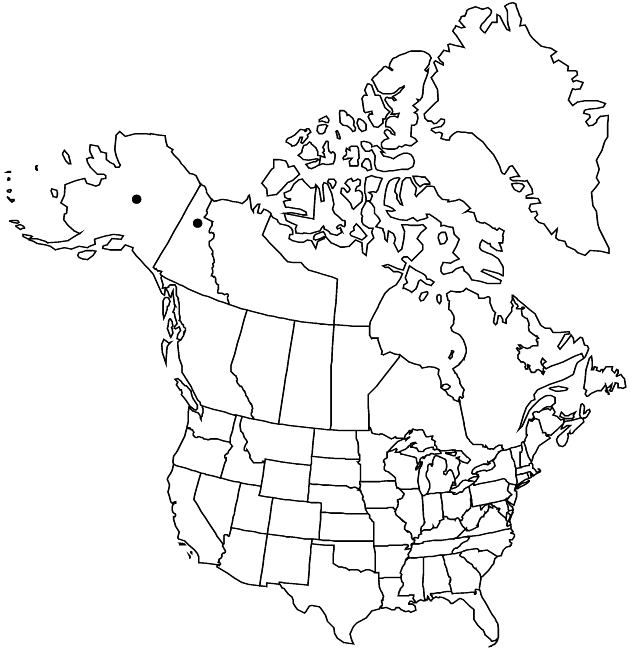Difference between revisions of "Erigeron hyperboreus"
Pittonia 2: 227. 1892.
FNA>Volume Importer |
FNA>Volume Importer |
||
| Line 27: | Line 27: | ||
|elevation=(30–)100–900(–2400) m | |elevation=(30–)100–900(–2400) m | ||
|distribution=Yukon;Alaska. | |distribution=Yukon;Alaska. | ||
| − | |discussion=<p>Some plants in each of two collections of Erigeron hyperboreus from Alaska (Parker 755, ALA; Murray 8514, ALA) have glabrous or glabrate leaves, stems, and phyllaries; other plants of the same populations are more typical and intermediacy is evident.</p> | + | |discussion=<p>Some plants in each of two collections of <i>Erigeron hyperboreus</i> from Alaska (Parker 755, ALA; Murray 8514, ALA) have glabrous or glabrate leaves, stems, and phyllaries; other plants of the same populations are more typical and intermediacy is evident.</p> |
|tables= | |tables= | ||
|references= | |references= | ||
| Line 51: | Line 51: | ||
|publication year=1892 | |publication year=1892 | ||
|special status= | |special status= | ||
| − | |source xml=https://jpend@bitbucket.org/aafc-mbb/fna-data-curation.git/src/ | + | |source xml=https://jpend@bitbucket.org/aafc-mbb/fna-data-curation.git/src/8f726806613d60c220dc4493de13607dd3150896/coarse_grained_fna_xml/V19-20-21/V20_733.xml |
|tribe=Asteraceae tribe Astereae | |tribe=Asteraceae tribe Astereae | ||
|genus=Erigeron | |genus=Erigeron | ||
Revision as of 15:26, 18 September 2019
Perennials, 3–15 cm; rhizomatous, fibrous-rooted, sometimes with branched, rhizomelike caudices. Stems erect to basally ascending, hirsute to hirsuto-villous (hair cross walls purplish black), minutely glandular (conspicuously so near heads). Leaves mostly basal (persistent) or basal and cauline; basal blades narrowly oblanceolate to narrowly oblanceolate-spatulate 10–50(–60) × 1.5–6 mm, cauline linear and reduced distally, margins entire (apices acute to obtuse), faces hirsute, eglandular. Heads 1. Involucres 5–8 × 9–15 mm. Phyllaries in 2(–3) series (usually dark purple), hirsute to villous (hair cross walls purplish black), minutely glandular. Ray florets 30–60; corollas white to blue, drying white or pink, purple, or blue, 7–15 mm (mostly 1–2 mm wide), laminae coiling. Disc corollas 3.5–5 mm. Cypselae 1.7–2 mm, 2-nerved, faces densely strigoso-hirsute; pappi: outer of setae (inconspicuous), inner of 15–20 bristles. 2n = 18.
Phenology: Flowering Jun–Aug.
Habitat: Ridges, rocky slopes, limestone scree, talus, serpentine fell fields, sandy tidal pools, grassy pockets in tundra, dryas heath, heath tundra
Elevation: (30–)100–900(–2400) m
Discussion
Some plants in each of two collections of Erigeron hyperboreus from Alaska (Parker 755, ALA; Murray 8514, ALA) have glabrous or glabrate leaves, stems, and phyllaries; other plants of the same populations are more typical and intermediacy is evident.
Selected References
None.
